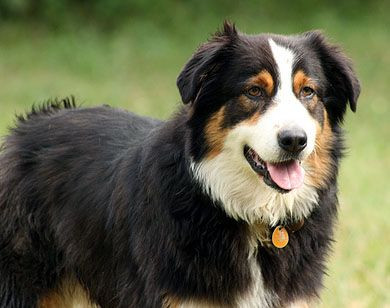Dogs Can Sniff Lung Cancer

Sniffer dogs have been known for helping find cancer in various studies.
Recently sniffer dogs are able to find Lung Cancer. And distinguish between non cancer, copd as well as Lung Cancer, published in the European Respiratory Journal.
Sniffer dogs are able to sniff out subtle changes in the volatile organic compounds (VOCs) that are given off by the body. Sniffer dogs have sense of smell the average percentage of dogs brain specific for analyzing smells is 40 times larger than of humans, Dogs can also identify smells somewhere between 1,000 to 10,000 times better than humans. On average humans have 5 million scent receptor compared to dogs which have 125-300 million scent receptors
Researchers in Germany collected sample from 220 volunteers including individuals with lung cancer and chronic pulmonary disease (COPD) and healthy individuals. The dogs (German shepherds, lab, and Australian shepherd) were able to detect 71 of 100 cases of lung cancer, and correctly identified 372 out of 400 lung cancer free individuals.
Dogs were able to differentiate between lung cancer, copd, tobacco smoke. These results confirm the presence of a stable marker for lung cancer that is independent of COPD and also detectable in the presence of tobacco smoke, food odors and drugs.
Author of the study, Thorsten Walles from Schillerhoehe Hospital, said: "In the breath of patients with lung cancer, there are likely to be different chemicals to normal breath samples and the dogs' keen’ sense of smell can detect this difference at an early stage of the disease.”
He continued to explain that “Our results confirm the presence of a stable marker for lung cancer. This is a big step forward in the diagnosis of lung cancer but we still need to precisely identify the compounds observed in the exhaled breath of patients. It is unfortunate that dogs cannot communicate the biochemistry of the scent of cancer!"
Research from this year alone, using sniffer dogs, were able to identify prostate cancer. Dogs were able to identify prostate cancer by urine samples and correctly determine the sensitivity and specificity by 91 percent.
Researchers using sniffer dogs for Bowel Cancer identified which samples were cancerous and which were not, from patients with varying stages of disease, including early stages. This equates to 95% accuracy, overall, for the breath test and 98% accuracy for the stool test, compared with conventional colonoscopy.
Published by Medicaldaily.com



























